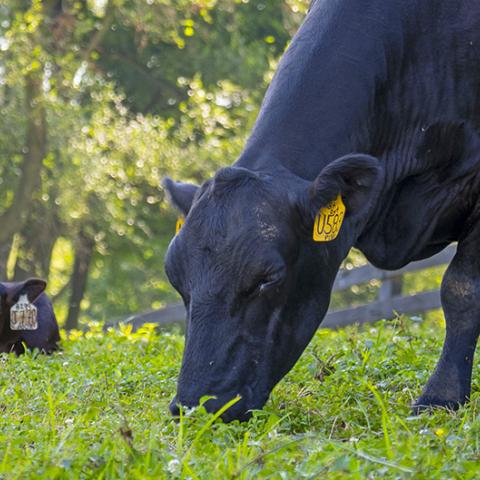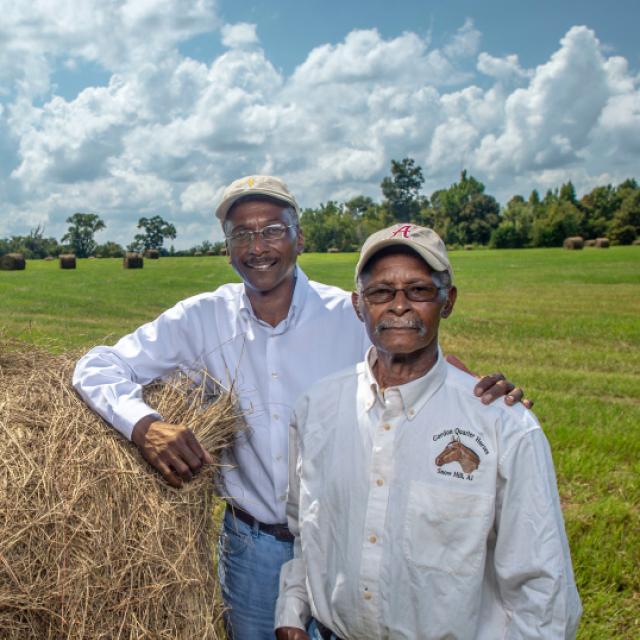
Press Release


Regional Conservation Partnership Program (RCPP) Non-Lethal Conflict Reduction Project - COLORADO
The Regional Conservation Partnership Program (RCPP) is managed and administered by USDA’s Natural Resources Conservation Service (NRCS). The Program encourages partners to join in efforts with producers to increase the restoration and sustainable use of soil, water, wildlife and related natural resources on regional or watershed scales.
The Natural Resources Conservation Service (NRCS) in Colorado and the Western Landowners Alliance (WLA) partnered to assist producers with reducing risk for carnivore and livestock conflicts and offer funding to help through USDA’s RCPP.
The project offers $2.5 million in funding opportunities for agricultural producers in counties that have experienced significant livestock losses to wolves and other large carnivores. Agricultural producers interested in implementing land management activities including range riding, carcass management and electric fencing to enhance livestock safety and reduce carnivore-livestock conflicts have until February 7th, 2025, to apply.
The goals of this special funding opportunity are to assist producer with conservation practice scenarios like range riding, carcass management, electric fencing/fladry and potentially other supporting practices, and assist producer with the following conservation benefits: terrestrial habitat, livestock production limitations, and field sediment, nutrient and pathogen loss.
This webinar will offer a detailed overview of the “Stewards of the Working Wild” RCPP funding opportunity and provide time for Q and A with Colorado NRCS staff and project partners.
DATE: January 17, 2025 - TIME: 1:00-2:00pm MST
CLICK HERE to join WEBINAR
If you are prompted to enter a meeting ID, you can use 867 1331 2313
to register and join. If links do not connect you, please click or copy and
paste the following into your browser where you can register and then
will receive a zoom link via email. https://us06web.zoom.us/webinar/
register/8817368766610/WN_AP_2o7tmSRyosT6ek-A3ng#/registration.

Contact your local service center to start your application.
Do you farm or ranch and want to make improvements to the land that you own or lease?
Natural Resources Conservation Service offers technical and financial assistance to help farmers, ranchers and forest landowners.

To get started with NRCS, we recommend you stop by your local NRCS field office. We’ll discuss your vision for your land.
NRCS provides landowners with free technical assistance, or advice, for their land. Common technical assistance includes: resource assessment, practice design and resource monitoring. Your conservation planner will help you determine if financial assistance is right for you.
We’ll walk you through the application process. To get started on applying for financial assistance, we’ll work with you:
Once complete, we’ll work with you on the application, or CPA 1200.
Applications for most programs are accepted on a continuous basis, but they’re considered for funding in different ranking periods. Be sure to ask your local NRCS district conservationist about the deadline for the ranking period to ensure you turn in your application in time.
As part of the application process, we’ll check to see if you are eligible. To do this, you’ll need to bring:
If you don’t have a farm number, you can get one from USDA’s Farm Service Agency. Typically, the local FSA office is located in the same building as the local NRCS office. You only need a farm number if you’re interested in financial assistance.
NRCS will take a look at the applications and rank them according to local resource concerns, the amount of conservation benefits the work will provide and the needs of applicants. View Application Ranking Dates by State.
If you’re selected, you can choose whether to sign the contract for the work to be done.
Once you sign the contract, you’ll be provided standards and specifications for completing the practice or practices, and then you will have a specified amount of time to implement. Once the work is implemented and inspected, you’ll be paid the rate of compensation for the work if it meets NRCS standards and specifications.